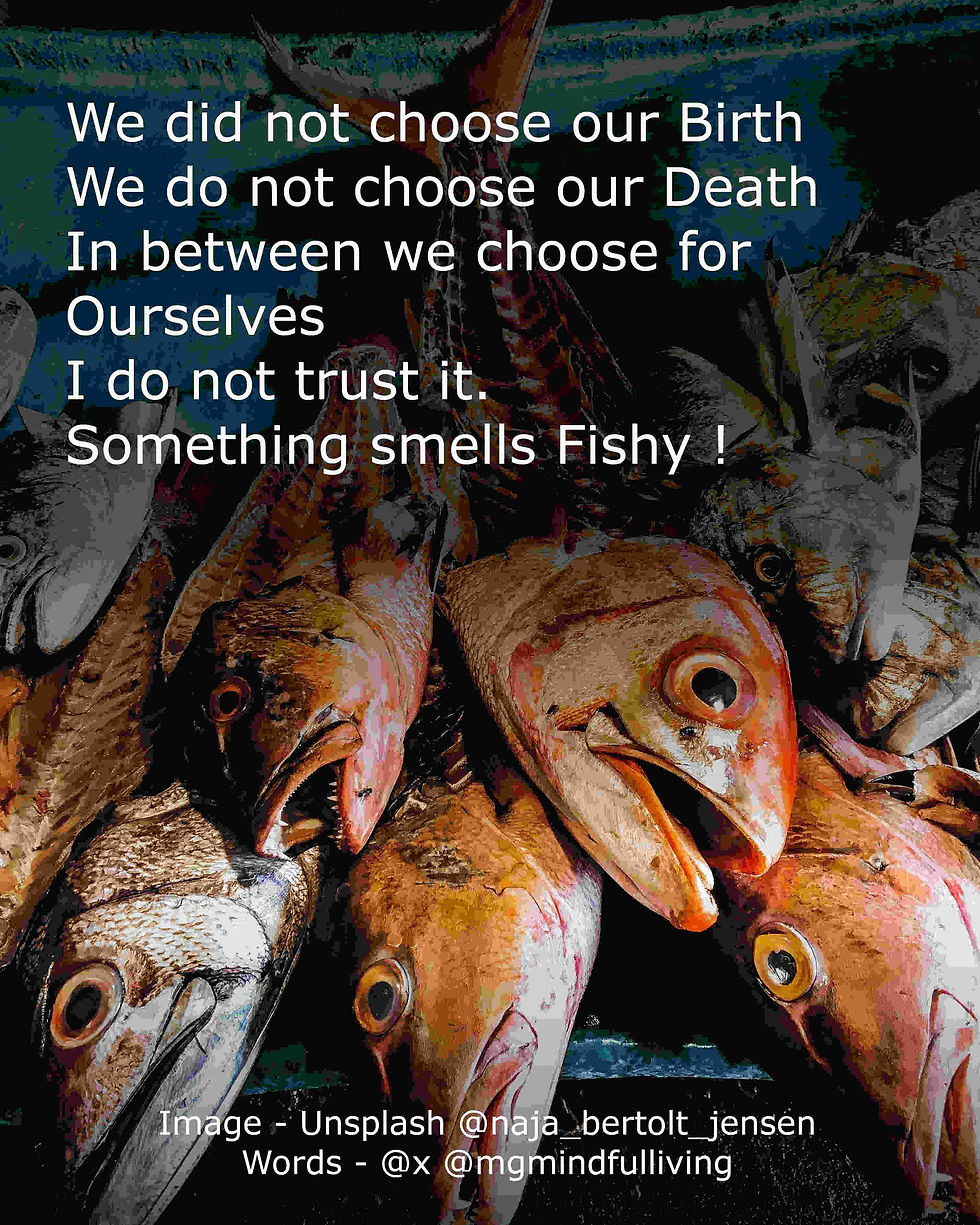Mindfulness is a tool not a destination, or outcome.
The vision, mission and goals, lead us to success. If you are working in a co-operation for that matter in any organization, you would agree. Having a clear target helps us to get there with ease. And it is true for the mindfulness as well. If you start in the wrong direction, you will end up in a wrong place, as mindfulness is not a destination but only a path. So, where are you going to head by using the mindfulness as a tool? That is where the goal of mindfulness matters. Like I wrote in previous article, mindfulness without wisdom is like a blind goose. You will knock on rocks and trees ultimately to be eaten alive by wild cats. Let's get things straight. As always proper way is to start with wisdom. And mind you this is just a guide, and with mindfulness tools, you can choose your destination.

How did I do it wrong.
I can remember I did it wrong. In my early years as a child, by default from our culture, I was introduced to the topic of meditation. And everyone told me about the benefits of meditation. If you know a little bit of practice, there is a saying which goes, that there are three kinds of intelligence.
Intelligence gathered by information,
Intelligence gathered by thinking (about information)
Intelligence generated through meditation.
And I can remember I wanted to be an intelligent person. So, I believed I could achieve to be intelligent by balancing out three of the components. And I believe it helped me. Rather than let it be the universe, I believed in reading, listening, thinking, and meditation to keep everything together. I know, what you think, that is correct right? Wrong, I was wrong. Those were not the correct goals of mindfulness. So, I ended up being in the wrong place at the end of it.
The Goal of mindfulness
Before further into the article, I will introduce the correct goal of mindfulness. And the rest of the article would be just the discussion and explanation.
True Goal of mindfulness is to learn the truth about nature (myself and the world)

Wrong reasons to be mindful
It is important to learn about some common wrong reasons to be mindful. If you read about or heard about mindfulness, straight away teachers talk about benefits of mindfulness. Like, having good sleep, relaxation, calmness, being able to concentrate, reduced stress, happiness, being able to tolerate sadness. I am not saying those are not, benefits of mindfulness. But they are more like side effects of mindfulness. If you focus too much on the side effect, you will stop there, and will never make mindfulness to grow into its true potential. And which is to understand the truth about nature. And you will become like the monk who did not know how to prioritize. Look at the following reasons given by Bing, as reasons to be mindful. And none of them gives the main reason and the only thing which matters, which is to learn the Truth about nature.
"Mindfulness offers a wealth of benefits that can enhance both our mental and physical well-being. Here are some compelling reasons to practice mindfulness:
Reduced Stress and Anxiety: Mindfulness helps us manage stress by promoting awareness of our thoughts and emotions. It encourages a nonjudgmental acceptance of the present moment, reducing anxiety and promoting calmness.
Improved Emotional Regulation: By practicing mindfulness, we become more adept at recognizing and managing our feelings. This emotional self-awareness can lead to healthier responses to life’s challenges.
Enhanced Cognitive Abilities: Mindfulness has been linked to better memory, attention, and cognitive performance. It sharpens our mental focus and clarity.
Stronger Relationships: Being mindful fosters empathy, compassion, and better communication. It allows us to be fully present with others, deepening our connections.
Better Physical Health: Mindfulness positively impacts our immune system, blood pressure, and overall health. It’s like a workout for our minds and bodies, promoting well-being from within.
Remember, mindfulness isn’t about escaping life’s challenges; it’s about engaging with them more skillfully. So, consider incorporating mindfulness practices into your daily routine—it’s like giving your mind a refreshing spa day!"
Now we have established the goal of mindfulness, I am ready for the next question. Why should we learn about the truth about nature?

Why does the truth matter?
Truth matters, and I would say that is the only thing which matters. From Descartes to Einstein, to Socrates, Scientists and philosophers and religious leaders are looking for a clue of truth. Often external, and often without any answers they fail. If you would like to read more on this, I have written previously on scientific method and why, it cannot answer some deep philosophical questions. And another dimension can be put forward by simply saying, that in life, something smells fishy. Even great scientists knew it, even Friedrich Nitsche Knew it (why he wrote beyond good and evil) that there is something fishy. Even Robert frost knew there is something fishy about the nature. And I am sure that they also knew where to look for, which is within ourselves.
If that is not enough reason for you to look for truth, what about the problem of afterlife? And throughout the blog I have introduced some of the wisdom facts, gained by previous teachers, who kindly passed them to us. And hope these will guide you. More importantly, we should use the tool 'mindfulness' to do an experiment on ourselves if we really want to know truth about ourselves. And who you should do it? And once you know, this fact, you will choose the life of a seeker.
Why truth matters, is answered in different forms in following articles as well
And even the poem, Dreamers and To catch the happiness

Comentarios